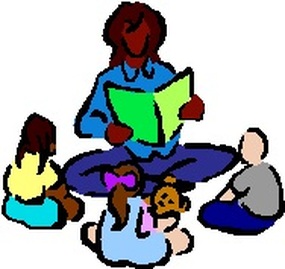 By Cheryl Ichikawa It has been said that “everything happens for a reason.” That life has a plan for each one of us, based upon our sensibilities, understandings, and life experience. For me, coming to Children Today was not an intention, but began as an intriguing opportunity. In Dora’s blog post, It’s a Tough Job But Someone’s Got to Do It: Hiring the Right Staff, she talks about what she looks for when recruiting and interviewing potential candidates. How she and her management staff look beyond the educational and experiential aspect of the candidate and try to get a glimpse of the person. For me, my pre-interview began in the classroom. As my instructor, Dora gained a semester-long glimpse into my sensibilities, philosophy and understanding about children. Through in-class discussions and side-bar inquiries, Dora learned about who I was, not only as an interested student, but as a concerned mother of two. In her blog post, she also talked about candidates needing to have courage and an ability to grow with each new challenge. What Children Today offers candidates is not only a place to gain valuable experience, but even more importantly, a place to grow personally, as well as professionally. The courage that a candidate must have comes from within. It is the willingness to be reflective when things seem to go wrong or failure seems to be part of your daily experience. It’s about being cognizant about how your actions and words can affect others. It’s about being open to new ways of thinking and always siding with empathy and compassion over judgment. But most importantly, it’s about being persistent and having the understanding that through mistakes and failure we grow and gain valuable insight into the needs of the children and ourselves in the process. However, the true test is in a candidate’s ability to connect with the children and their families. Our work is relationship-based, which means that progress happens after a level of trust is established. While some children (and families) welcome you with open arms, others will make you work hard to earn their trust, which can be very challenging. While this work may not be for everyone, Children Today has given me a place to grow as a teacher, mother and member of society. The experience I have gained has greatly impacted my understanding about society and the human condition. Here I have learned how trauma affects lives. However, along with building relationships, creating a safe environment, and providing opportunities for learning and exploration, what keeps me coming back are the smiles and hugs that greet me each morning. For me, that is the greatest reward of all. By Dora Jacildo I love this organization and am grateful to every staff member who contributes to our ability to provide the best possible services to the children and families in our care. Like many agencies, we are a family. A very successful executive once told me that he would never hire someone he wouldn’t be willing to invite to his home for dinner. I feel the same way. Every person, regardless of their title, makes a meaningful impact on the culture of our organization. It is what has made Children Today an attractive place to work for many. Our philosophy is intended to touch every person that walks through our doors. When we recruit and interview potential candidates, our criteria goes beyond education and experience and really looks at character, emotional intelligence, and competencies. We are most concerned with assessing:
· Ability to build relationships · Ability to give of themselves to others · Ability to see the opportunity for growth with every challenge · Grace, kindness, empathy · Maturity, wisdom, self-awareness · Courage Children Today, like many other organizations, provides on the job training opportunities, workshops, staff development meetings, and retreats. However, we recognize that there are core values that we all hold as individuals that make our work with children and families possible. The implementation of our program forces all of us to be reflective in order to ensure that we are meeting the needs of those we support. Our trauma-informed service delivery model puts the focus on “doing no harm” to families that have suffered many injuries. Our anti-bias curriculum challenges more traditional ways of engaging children in a conversation about the world they live in. Our daily interactions with children who are chronically stressed strengthen our commitment to them and to each other. Our awareness of the innocence that’s been lost unites us in our grief. We recognize that not everyone can do this work. We also know that no amount of education or work experience can prepare you for what we expect from our employees. The quest to understand how to live a life of service is something very personal. All we can do is try our best to identify candidates whose life mission is a complement to what we’re about.
By Elia Rocha This past Sunday was “National Grandparent’s Day”, a holiday which commemorates the invaluable contributions and wisdom of these matriarchs and patriarchs. For the families we work with, often its grandparents who take on many of the childrearing duties, from dropping off and picking up children from care so that parents can go to work or school, to providing a place to live for these previously homeless families, to becoming temporary guardians while parents try to get on a more stable footing (usually they are struggling with addiction, incarcerated, or children have been removed from their care by the Department of Child & Family Services) to adopting their grandchildren when they have been abandoned or their parents have lost their legal rights.
There’s a lot of love on display within these families, but it’s a complicated dynamic. There can be a great deal of ambivalence here, especially when providing security and stability for grandchildren means taking over for their own children. Just how some of these grandparents navigate these relationships and manage to care for all their children is a study in grace. Of course, it’s not just grandparents who are taking on these parental roles. We’ve seen aunts, uncles, older siblings, cousins, and event great-grandparents step in and offer the love and nurturing that all children need to thrive. It is fitting to acknowledge the indelible love and commitment they embody. Thank you. |
AuthorVarious members of the Children Today staff contribute to these blog posts. Archives
July 2024
Categories |
